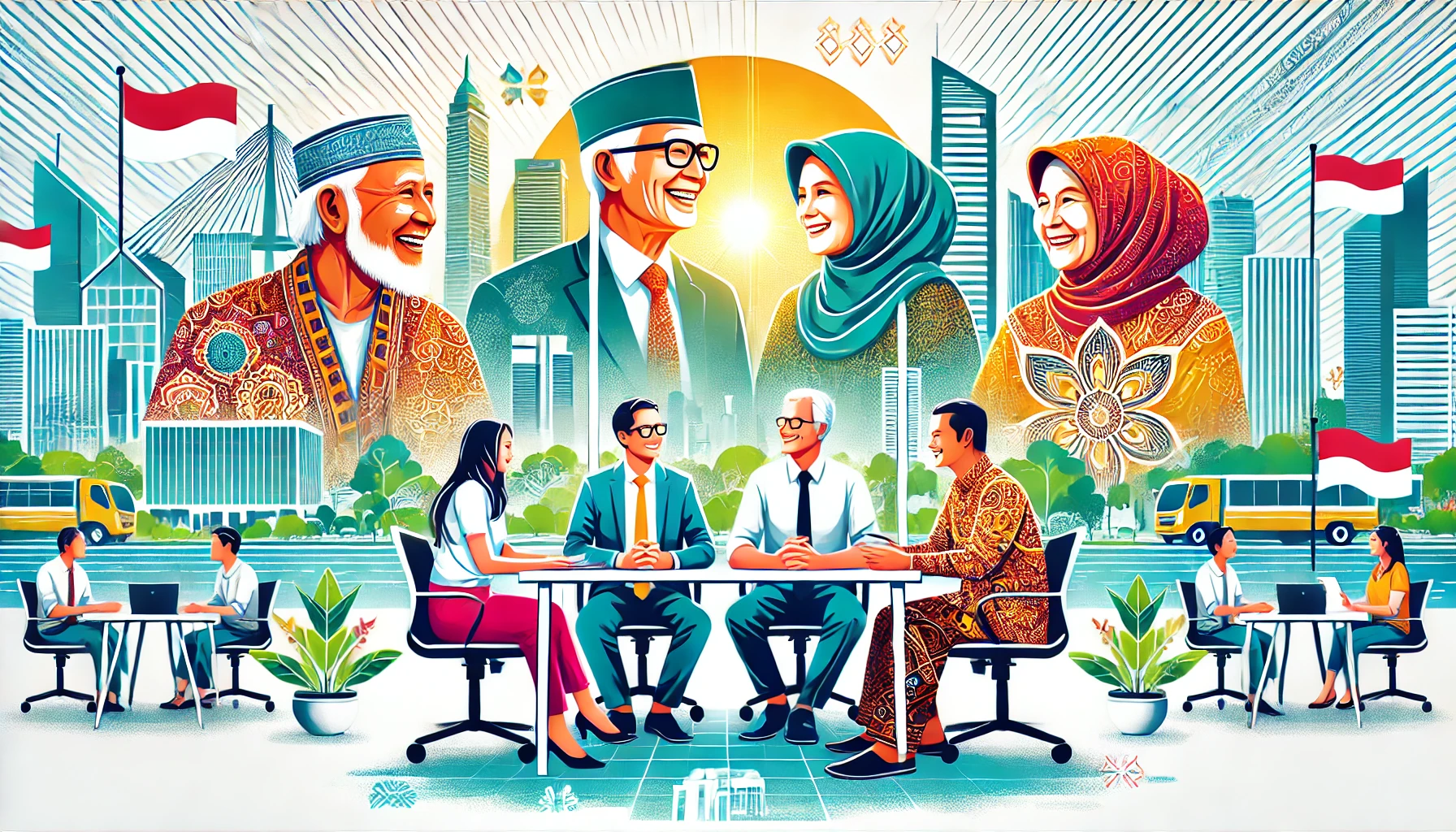The Aging Advantage: Why Older Workers Are Key to Indonesia’s Employment Future
A World Bank study reveals that increasing employment among older workers in Indonesia complements rather than competes with opportunities for younger workers. The findings support raising the retirement age and highlight the potential for inclusive economic growth amid an aging population.

The World Bank’s Social Protection and Labor Global Practice has released a policy research paper, authored by Amanina Abdur Rahman, titled "Are There Jobs for Everyone? An Analysis of the Relationship between the Employment of Older and Younger Persons in Indonesia." This comprehensive study addresses the concerns surrounding Indonesia's aging population and its implications for the labor market. Utilizing data from the Indonesia Labour Force Survey (Sakernas) from 2016 to 2023, the research explores whether an increase in the employment of older workers impacts younger and prime-aged individuals, examining employment rates, unemployment rates, hours worked, and incomes. The findings provide critical insights into the dynamics of intergenerational employment and have far-reaching implications for Indonesia’s policy strategies as the country grapples with the challenges of aging demographics and limited social protections for its older population.
Older and Younger Workers Complement Rather Than Compete
The study demonstrates that the employment of older individuals does not crowd out opportunities for younger workers. Contrary to the "lump of labor" fallacy, which assumes a fixed number of jobs in an economy, the findings reveal a positive association between the employment rates of older and younger workers. Specifically, a 1% increase in the employment rate of older individuals is linked to a 0.4% rise in the employment rate of youth and a 0.7% increase for prime-aged workers. This robust relationship persists across gender, educational attainment, and economic sectors. Importantly, the research finds no evidence of a significant negative correlation between older workers' employment and younger workers' labor market outcomes, such as hours worked or wages. While there are occasional minor negative associations, such as a 2% reduction in male youth income with a 1% increase in older male employment, these impacts are minimal and unlikely to have practical consequences.
Diverse Roles Reduce Job Market Competition
One of the central findings is the complementary nature of older and younger workers in Indonesia’s labor market. The study highlights stark differences in the types of jobs these groups hold. Younger workers, benefiting from higher levels of formal education and technical skills, are more likely to secure formal employment in industries or services, while older workers are often concentrated in informal or physically demanding jobs, particularly in agriculture. This divergence reduces direct competition for jobs and fosters a complementary dynamic where the employment of one group does not diminish opportunities for the other. For example, younger workers are more adept at technological tasks, while older individuals bring job-specific experience and managerial skills to the workforce.
Raising Retirement Age Supports Inclusive Growth
The paper also underscores the importance of ongoing policy reforms in Indonesia, particularly the government’s gradual increase in the retirement age. Since 2014, Indonesia has been raising the retirement age from 55 to an eventual target of 65 by 2043, to address the economic challenges posed by a growing elderly population and the inadequacies of existing pension and social protection systems. These reforms are crucial as more than one-third of Indonesia’s elderly population remains vulnerable or poor, and coverage under existing social assistance programs is limited. The study’s findings support the government’s efforts by demonstrating that extending working lives not only bolsters income security for older individuals but also contributes to labor market inclusivity and economic growth. Additionally, such policies can mitigate potential declines in GDP growth stemming from a shrinking working-age population.
Future Opportunities for Older Workers in a Changing Economy
Educational attainment and technological advancements are also highlighted as key factors shaping future labor market dynamics. Older workers in Indonesia currently face limited access to “age-friendly” jobs roles that leverage their experience and soft skills while accommodating their physical capabilities. However, as education levels rise and technology transforms the nature of work, there is potential for older workers to transition into jobs better suited to their preferences and abilities. Research from other countries suggests that jobs emphasizing flexibility, autonomy, and inclusive environments can significantly enhance the productivity and satisfaction of older workers, a model that Indonesia can adopt to improve its labor market outcomes. As the nation continues to implement reforms and adapt to demographic changes, findings such as these offer a roadmap for policymakers aiming to balance the needs of a diverse and evolving workforce.
- FIRST PUBLISHED IN:
- Devdiscourse









